Introduction
Artificial Intelligence (AI) consulting services are rapidly reshaping the landscape of business strategy and operations. Leading the charge in this transformative space is BCG, a trusted authority in the field. By leveraging AI technologies, BCG delivers superior solutions tailored to address specific organizational challenges and unmet needs.
This strategic application of AI allows businesses to enhance operational efficiency, effectively manage risks, and adapt to the ever-changing market demands. The financial sector, in particular, benefits greatly from AI, with its ability to power everything from drug development to supply chain optimization. As the industry continues to experience growth, it's evident that the integration of AI consulting services is essential for organizations to stay competitive and innovative.
The introduction of generative AI models, like OpenAI's ChatGPT, further expands the possibilities of AI consulting, enabling consultants to guide businesses not only through AI integration complexities but also to help them harness AI's potential for product development. CEOs and industry leaders recognize the urgency of embracing generative AI to meet market demands and stay ahead of the curve. To capitalize on AI's strategic importance, organizations must identify compelling problems that AI can solve, paving the way for future growth and innovation.
The focus is on leveraging AI to address real-world challenges, ensuring that businesses lead the way in efficiency and technological advancements. With BCG at the forefront of AI consulting, organizations can trust in their expertise to navigate this exciting new era.
The Strategic Importance of AI at BCG
AI consulting services are reshaping the landscape of business strategy and operations, with firms like BCG leading the charge by deploying these technologies to deliver superior solutions. By identifying key unmet needs or challenges, these services are tailored to address specific organizational issues, from optimizing policy settings and improving public service delivery to enhancing support functions and reducing overheads. This strategic application of AI allows businesses to improve operational efficiency, manage risks effectively, and adapt to the ever-changing market demands.
In the financial sector, where data is abundant and valuable, AI is particularly transformative, powering everything from drug development to supply chain optimization. The industry is experiencing growth, with the management consulting sector in the U.S. projected to earn $392.2 billion in sales this year, a 2% increase from the previous year as reported by IBISWorld. The consulting work spans a range of applications, including advising on regulatory compliance, especially as new laws emerge in the EU, to developing AI-driven customer support systems.
The introduction of generative AI models like OpenAI's ChatGPT has broadened the scope of AI consulting services, offering capabilities that extend beyond traditional AI applications. These models have sparked a new wave of innovation, generating output that rivals human creativity in text, image, video, or sound creation. With generative AI, consultants not only guide businesses through the complexities of AI integration but also help them harness its potential for product development, ensuring that risk management is woven into the fabric of the organization's processes and culture.
CEOs and industry leaders recognize the urgency of embracing generative AI to stay competitive. As Arvind Krishna, CEO of IBM, emphasizes the importance of risk mitigation and innovation, and Sharon Marcil from BCG asserts the need for top-level responsibility and embedding risk protection in core processes, it's evident that AI is reshaping business strategies. This shift towards a technology-driven approach necessitates a fresh expertise blend—creativity and the ability to think beyond conventional boundaries are now as crucial as technical skills.
To capitalize on AI's strategic importance, organizations must identify a compelling portfolio of problems that AI can solve, thereby capturing value and building the capabilities required for future growth. The focus is on leveraging AI to address real-world challenges, ensuring that businesses not only keep pace with technological advancements but also lead the way in innovation and efficiency.
Real-World Applications of AI at BCG
Artificial Intelligence (AI) consulting services, like those provided by BCG, have proven their worth in various industries by transforming business operations and fostering innovation. A notable success story is the optimization of supply chain management for a manufacturing company. By integrating AI algorithms, the company was able to significantly enhance inventory management, leading to cost reductions and heightened efficiency.
This is just one example of how AI can be leveraged to address complex challenges by automating and refining operations, which is particularly valuable in sectors with intricate processes such as manufacturing.
The transformative power of AI extends beyond mere automation; it involves using generative AI (GenAI) to create novel and realistic content, which is rapidly becoming a game-changing force across numerous fields. GenAI's impact is seen in the swift pace of adoption, its influence on market expectations, and the productivity improvements it has already garnered in specific cases. As AI continues to advance, it becomes an increasingly indispensable tool for businesses seeking to remain competitive and efficient.
AI's potential is underscored by significant market interest and the tangible benefits it delivers, such as automating and optimizing business processes. This is particularly evident in industries like finance, where the wealth of available data enables AI to provide deep insights and enhance decision-making. The importance of AI in revolutionizing various sectors is further highlighted by industry leaders who emphasize the need for organizations to adapt and evolve their technology stacks to leverage AI effectively.
In the realm of AI consulting, the goal is to identify the most impactful use cases tailored to an organization's unique needs. This approach not only captures value in the short term but also establishes the foundation for managing risks and yielding greater benefits as the technology matures. For companies embarking on their AI journey, starting with simpler, low-complexity tasks often yields quick wins and sets the stage for more complex applications in the future, as evidenced by industry surveys and executive insights.
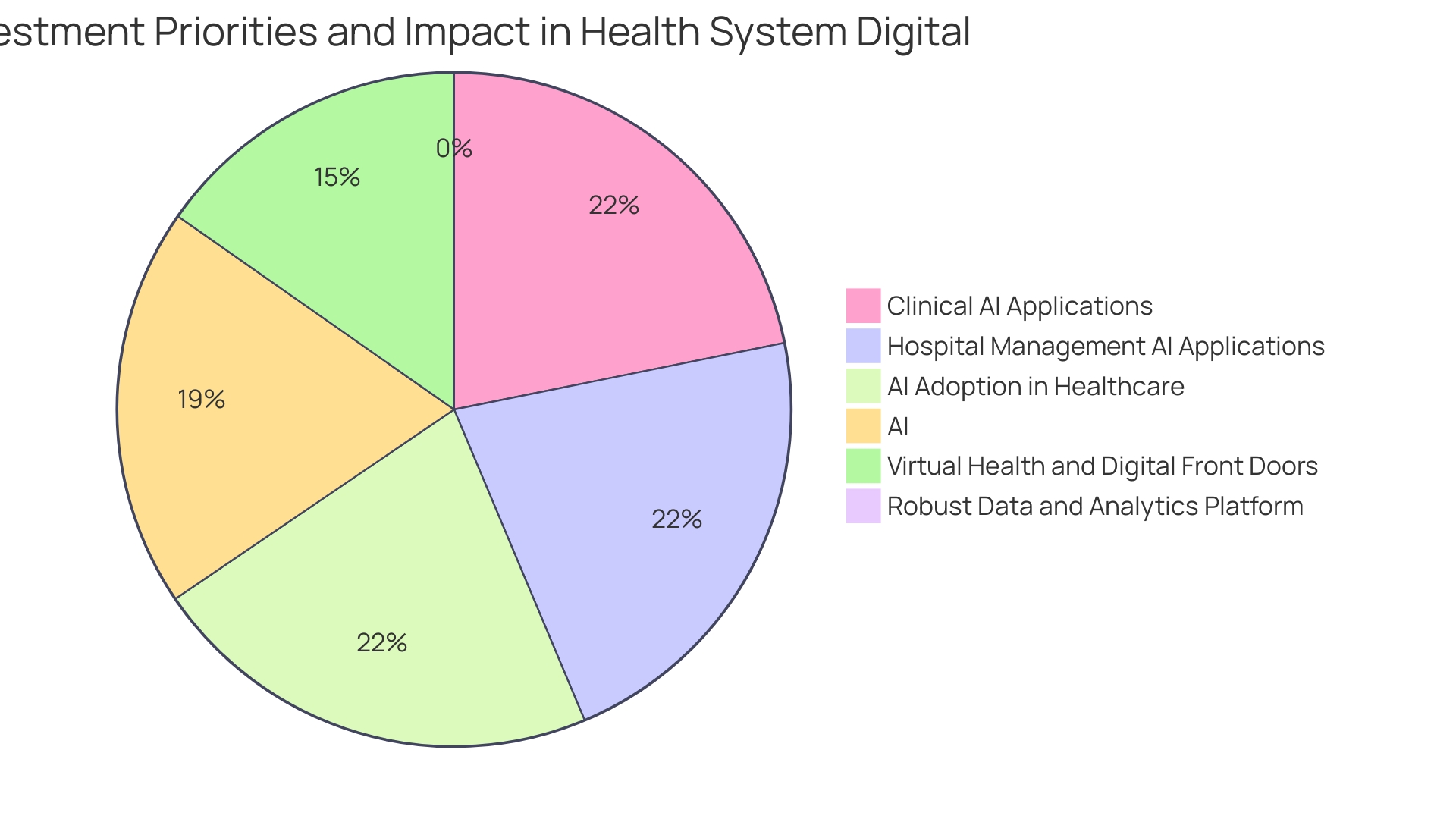
Interview Processing and Analysis with AI
BCG's innovative application of Natural Language Processing (NLP) technologies showcases a transformative step in talent acquisition and decision-making processes. Leveraging AI, BCG automated the analysis of interview transcripts, which traditionally represented a bottleneck due to the sheer volume and time required for manual review. Through the integration of NLP algorithms, the company was able to extract pivotal insights and identify patterns across interviews with impressive speed and accuracy.
This strategic move not only expedited the recruitment workflow but also enhanced the quality of hiring decisions by providing a more data-driven approach to candidate evaluation.
The application of AI in interview processing is part of a broader trend towards the digitization of human resources. AI algorithms now have the capability to analyze video responses of candidates, assessing not just the content of their answers, but also non-verbal cues such as facial expressions, tone of voice, and keyword usage. These advanced systems provide comprehensive reports that inform recruiters' decisions, streamlining the hiring process while also ensuring a more objective analysis of potential hires.
This shift towards AI-assisted recruitment mirrors the advancements seen in various research applications. For example, at Washington State University, a research group led by Jasson Makkar utilized AI to automate the analysis of hair samples, a process that was once labor-intensive and time-consuming. By employing AI computer vision models and high-resolution imaging, researchers could more efficiently assess the health of individuals based on their hair, demonstrating the vast potential of AI to revolutionize not only business operations but also scientific inquiry.
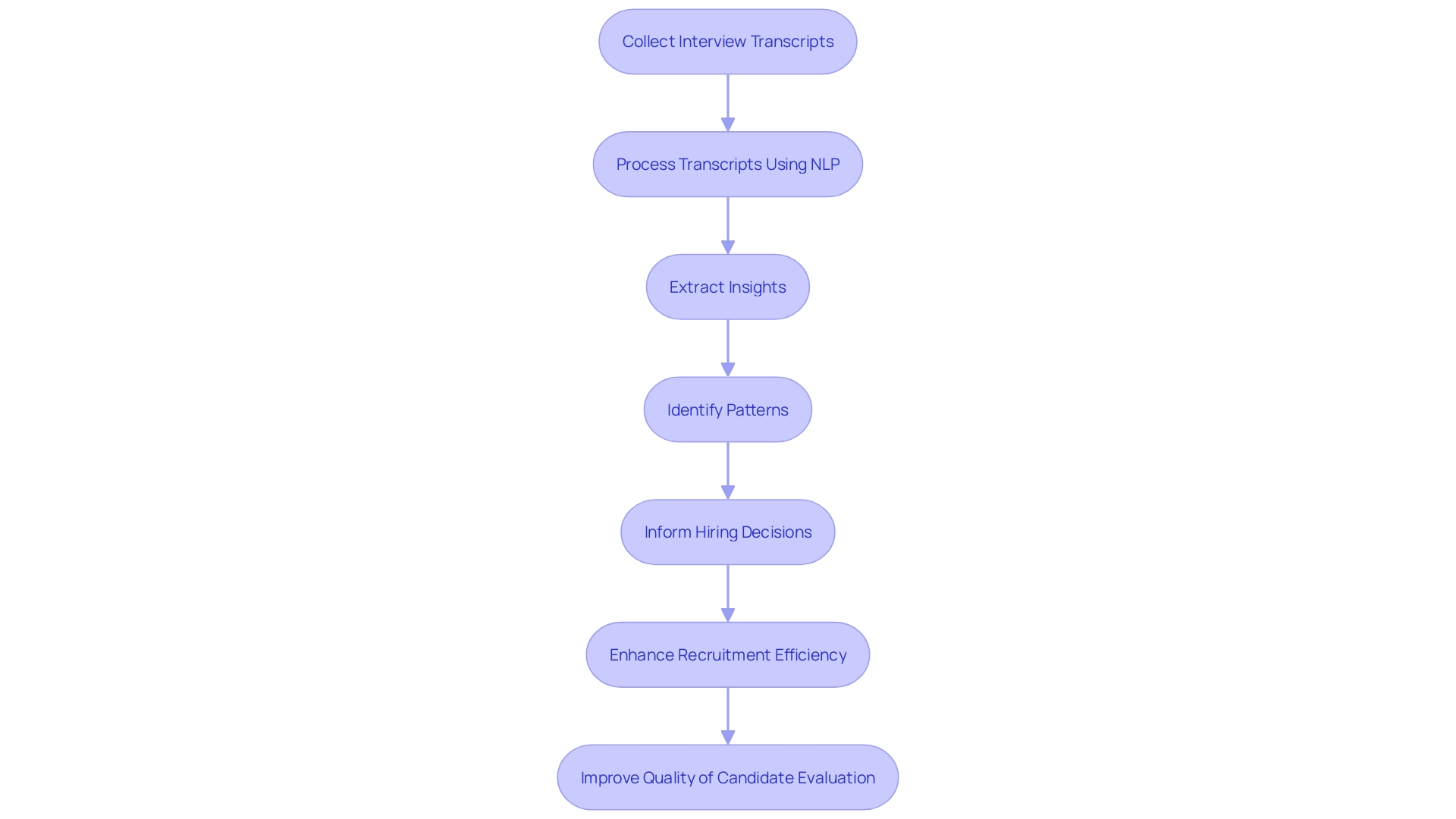
Development and Applications of Conversational AI
The integration of Conversational AI into customer support services has been a game-changer for businesses and startups alike. By harnessing the capabilities of AI-powered chatbots and virtual assistants, companies are able to offer personalized and streamlined customer experiences. A striking example comes from the financial services sector, where the adoption of Conversational AI has led to a noteworthy 30% drop in customer support expenditures and a 20% increase in customer satisfaction rates.
These virtual assistants are more than just tools for customer interaction; they are sophisticated systems that combine speech recognition, language models, and advanced databases to understand and respond to users effectively. In the ever-evolving domain of customer experience, AI has shifted the paradigm from traditional, static interactions to dynamic, real-time dialogues that cater to customer preferences. Elizabeth Tobey from NICE underlines that customers nowadays expect to resolve their queries through digital solutions, emphasizing the importance of meeting these expectations.
Moreover, the potential of AI to revolutionize traditional business models is immense. Niches such as the payments industry are already witnessing GenAI's transformative power, which is evident from the rapid adoption and significant productivity gains in early use cases. For instance, by introducing AI into the mix, companies have been able to efficiently manage an increasingly complex landscape of language diversity and data analysis, as demonstrated by Holiday Extras, a leading European travel extras provider.
The significance of AI in business is further highlighted by industry reports suggesting that half of the customers consider switching to a competitor after just 10 minutes on hold. This underscores the urgency for businesses to adopt AI-driven customer care solutions. The impact of such technologies is reflected in the statistics, with over 70% of customers reporting positive experiences with chatbots.
As businesses continue to harness these AI solutions, we can expect to see a sustained transformation in how companies interact with their customers and manage operations more broadly.
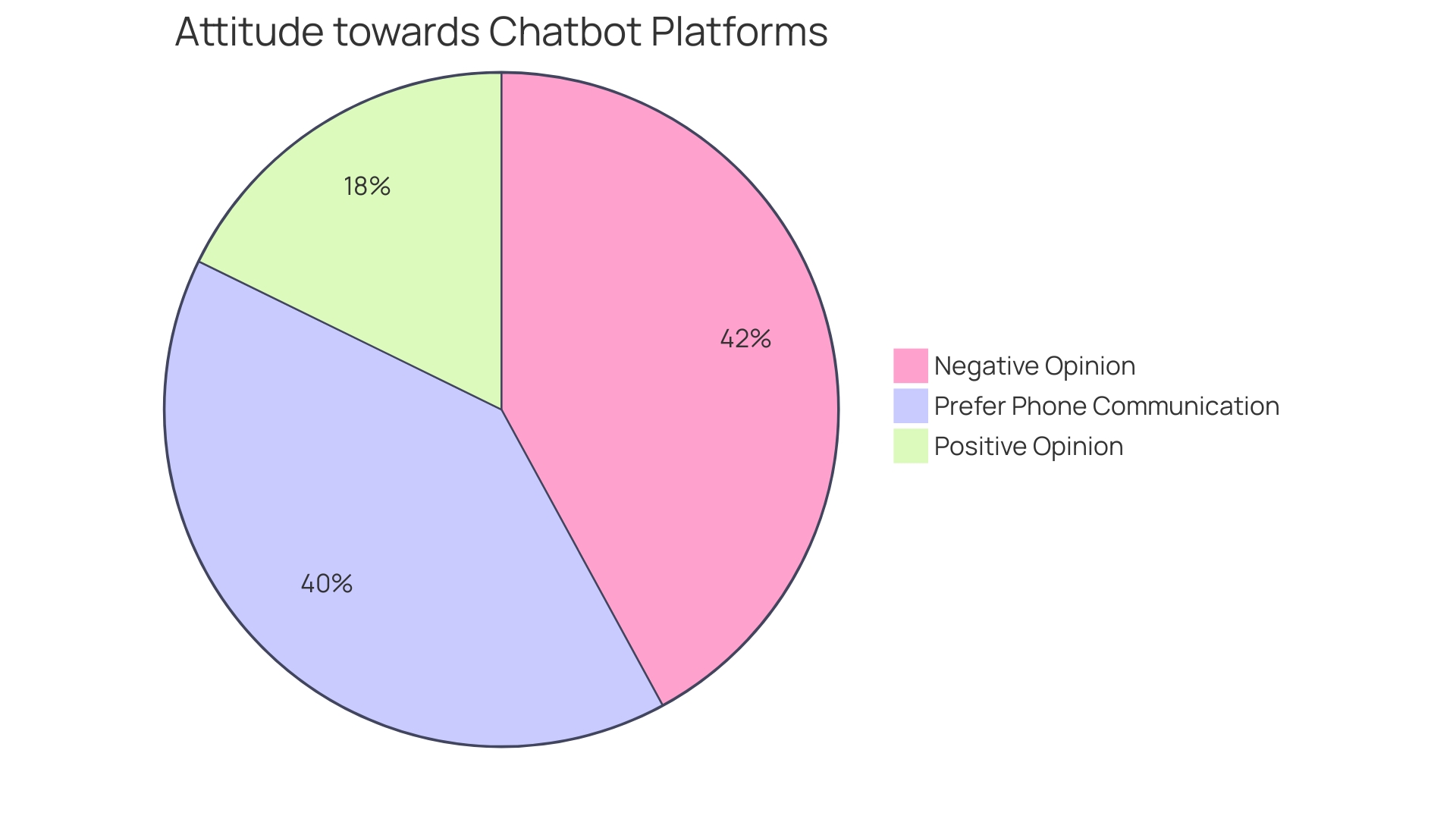
Enterprise GPT: Enhancing Productivity and Efficiency
Innovation in AI is revolutionizing the way businesses operate, and one area where it shines is in optimizing service delivery and operations. For instance, BCG's development of the Enterprise GPT model exemplifies such innovation by automating routine tasks, synthesizing complex data into actionable insights, and refining decision-making. Consider how a retail company, through the application of Enterprise GPT, automated its inventory forecasting process, which translated into a significant reduction of stockouts by 15% and an uplift in revenue by 10%.
These advancements are not just about efficiency; they are reshaping the landscape of work. As companies like Holiday Extras and Summer Health illustrate, AI tools like Generative Pre-trained Transformers are empowering employees to overcome language barriers, handle multi-market strategies, and reduce the time spent on administrative tasks, such as producing medical visit notes, which traditionally consume over half of medical care providers' time.
The impact of AI on productivity is not just anecdotal but measurable. BCG's consultants, utilizing GPT-4, demonstrated a 12.2% increase in task completion, a 25.1% improvement in speed, and a 40% boost in quality of results. This tangible evidence of Ai's potential makes a compelling case for its integration into various business processes—ranging from policy and program development to improving regulatory compliance and the efficiency of support functions.
As business leaders, like Sharon Marcil from BCG, advocate, the time to integrate Generative AI into the core of business operations is now. This shift from traditional strategies to technology-driven approaches requires a new kind of expertise and a creative mindset. It's about building internal capabilities and forming strategic partnerships to harness the full potential of AI, ensuring a competitive edge in the rapidly evolving business environment.
Evolving Roles and Skills in the AI Era
Artificial Intelligence (AI) is swiftly changing the professional environment, necessitating a shift in the skill sets that employees possess. Traditional roles are evolving as AI automates tasks such as data entry, website data retrieval, and spreadsheet creation, which means that businesses and startups must look towards upskilling and reskilling their workforce to stay competitive.
Upskilling allows employees to enhance their current abilities, making them more proficient in their roles and better equipped to handle advanced tasks. Meanwhile, reskilling is the process of learning new skills that are essential in a job market where AI is increasingly prevalent. This dual approach is vital in bridging the skills gap that is widening as technology advances.
Global trends show a surge in demand for technological, social, and emotional skills, particularly in healthcare, managerial roles, and industries requiring a high degree of interpersonal empathy and leadership. In stark contrast, roles that involve a high volume of repetitive tasks are seeing a decline, with projections suggesting up to 30 percent of current workplace hours could be automated by 2030 due to advancements in AI, including generative AI technologies like ChatGPT.
To address these challenges, companies like eLamp have emerged, leveraging AI to transform skills management, allowing businesses to power upskilling from within. These efforts are crucial as they align with the World Economic Forum's prediction that 50% of employees will need new skills by 2025. Notably, experts from firms like OODA emphasize that while technology may eliminate certain jobs, it also creates new opportunities, underscoring the importance of a workforce that is adaptable and prepared for the changes AI brings.
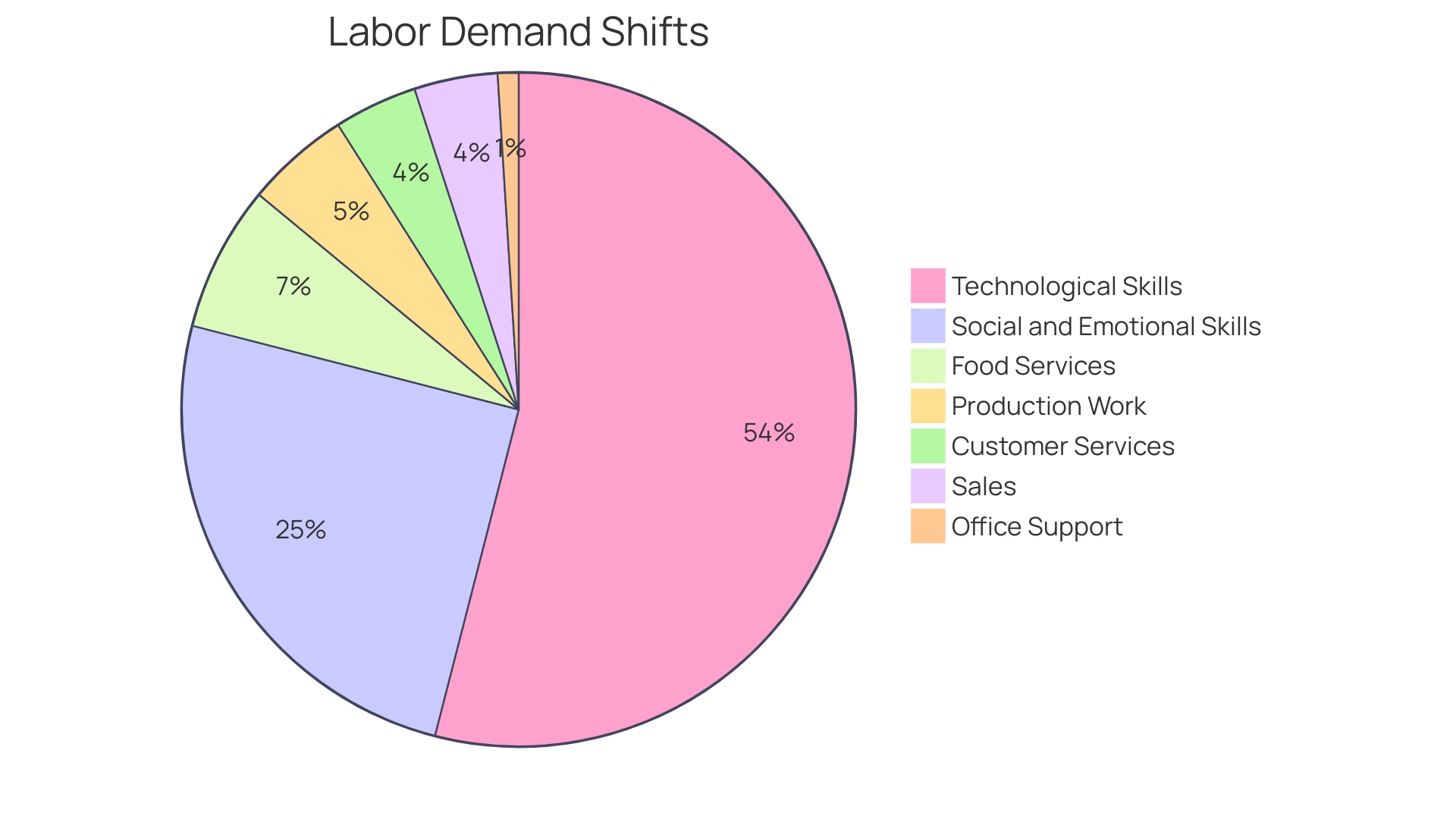
Measuring the Impact of AI on Consulting Services
AI consulting services are transforming the business landscape with their ability to enhance decision-making, streamline operations, and improve customer experiences. These services leverage generative AI models, such as OpenAI's ChatGPT, which excel in creating new, human-like content across various media, and have significant implications for consulting firms. The versatility of AI is evident in its application across public policy, service delivery, and optimizing operations, leading to improved accessibility of public services, reduced risks, and a more efficient allocation of resources.
The integration of AI in consulting has demonstrated clear advantages, such as cost reduction and increased efficiency. For instance, management consulting in the United States has seen a resurgence in growth, with an expected $392.2 billion in sales this year, a 2% increase from the previous year, according to IBISWorld. This growth is partially attributed to the role of consultants in guiding businesses through AI-related regulatory compliance and the development of AI systems that enhance customer support and mitigate risks.
Industry leaders recognize the importance of embracing AI. Sharon Marcil from BCG emphasizes the necessity of integrating AI into an organization's risk processes and core functions. This integration is not merely a technical upgrade but a foundational shift that requires building internal capabilities and fostering a culture that values innovation and risk management.
Similarly, Tom Wilson of Allstate insists on the need for creativity and internal expertise to navigate a technology-driven strategy.
Moreover, the fear of AI's potential negative implications, such as the Skynet scenario, underscores the urgency for businesses to explore AI tools responsibly. The AI industry's evolution underscores the need for a proactive approach to harnessing the technology's benefits while maintaining vigilance to safeguard against potential pitfalls.
In summary, AI consulting services are not just a trend but a critical component for businesses and startups to remain competitive in a rapidly evolving market. The ability to identify and solve unique organizational challenges through AI is invaluable, making it imperative for companies to adopt a strategic approach to AI integration.
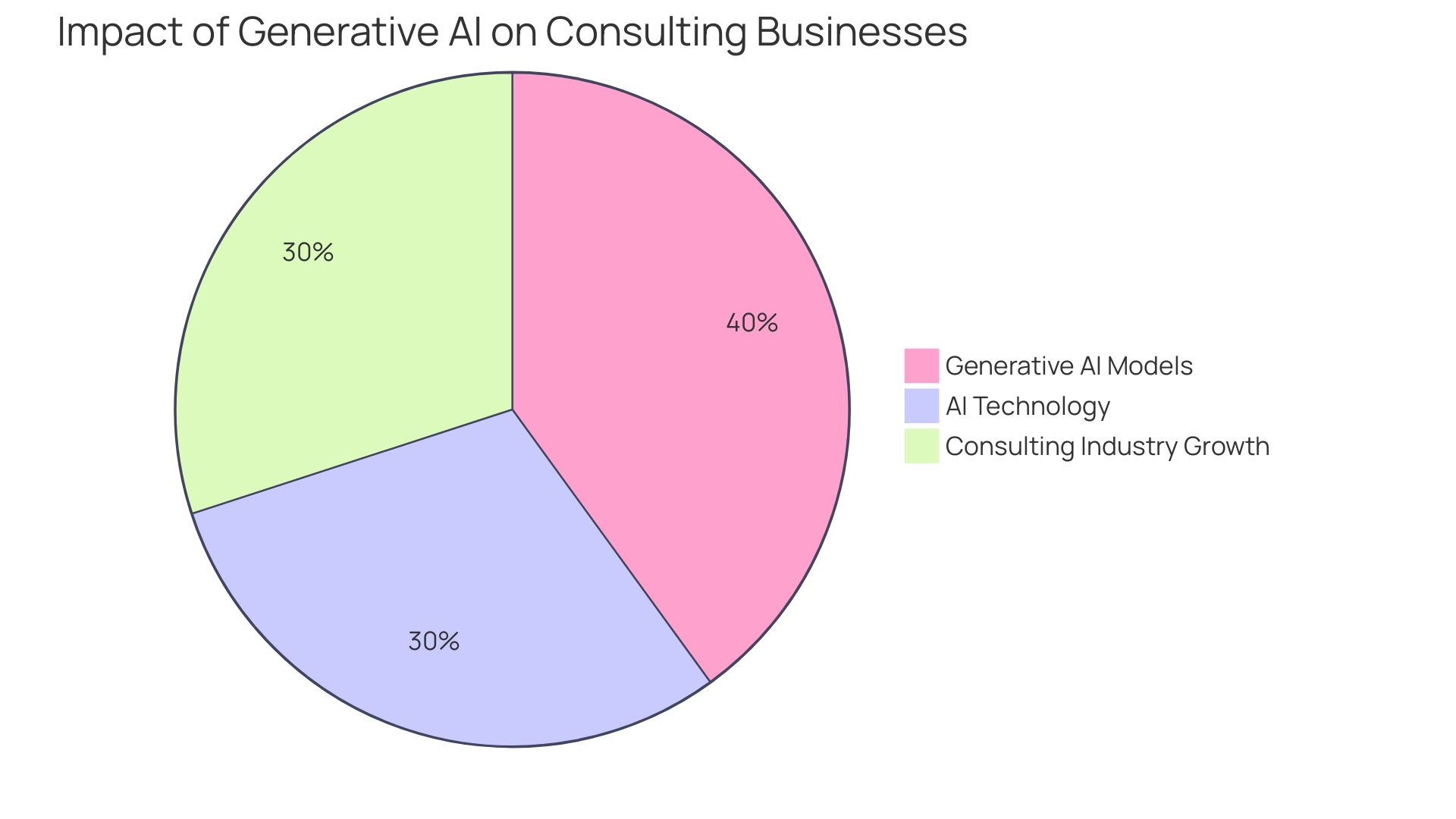
Strategies for Successful AI Adoption in Consulting
The integration of artificial intelligence into business consulting is transforming the landscape, offering a blend of strategic insight and technological innovation. Companies such as Macky AI are democratizing access to consulting services, empowering small and medium-sized enterprises (SMEs) with AI-driven tools tailored for critical business needs. From financial analysis to marketing strategy development, the use of AI in consulting is proving to be a disruptive force, challenging traditional models with its efficiency and scalability.
Amidst this transformation, studies conducted with over 1,300 business and technology leaders, facilitated by Ipsos, have pinpointed a roadmap for AI adoption success. The findings underscore the necessity for organizations to prioritize a clear alignment of AI initiatives with their overarching goals, an embrace of a culture primed for experimentation and learning, and robust data governance protocols. These components are not mere suggestions but have been identified as the most influential factors determining the speed at which businesses derive value from AI.
With generative AI and natural language processing technologies on the rise, the potential applications span from predictive maintenance to customer engagement, offering a gateway to enhanced competitiveness, innovation, and revenue generation. As businesses navigate their AI journey, it's critical to pinpoint the unique challenges and opportunities they face, ensuring that AI solutions are not just implemented but are integrated in a manner that propels them toward their strategic objectives.
Transforming Consulting with AI: Lessons from BCG
The integration of AI into consulting services has marked a pivotal shift in the industry, as vividly illustrated by BCG's advancements in the field. By incorporating AI, consultancies like BCG have redefined the landscape, delivering enhanced decision-making tools, refined policy options, and superior service delivery to clients. These AI-driven approaches enable businesses to not only understand and tackle current challenges more effectively but also to anticipate future trends and opportunities, ensuring they remain at the forefront of innovation.
The influence of AI on consulting is underscored by its capacity to automate labor-intensive processes significantly, as demonstrated by a case where AI systems took over the meticulous task of claims verification, transforming it from a manual 'eyes-on-glass' review to a largely automated process with human oversight primarily for accuracy checks. This streamlining effect leads to more efficient operations, allowing businesses to reallocate resources to more strategic initiatives.
With generative AI, such as ChatGPT, consultants are now equipped to craft personalized text, imagery, or even program code that resonates with the unique requirements of a business. This capability is not only remarkable in its own right but also serves as a foundation for innovation and refinement within the consulting sector. Looking at the broader picture, the management consulting industry is poised for growth, with an anticipated $392.2 billion in sales, a 2% increase from the previous year, as reported by IBISWorld.
The success stories from BCG and others in the field reinforce the transformative power of AI in consulting, offering a rich repository of insights and strategies for businesses and startups aiming to harness this technology for competitive advantage, risk management, and operational excellence.
Conclusion
In conclusion, AI consulting services play a crucial role in helping organizations stay competitive and innovative. By leveraging AI technologies, firms like BCG offer tailored solutions to address specific challenges and enhance operational efficiency. The financial sector, in particular, benefits greatly from AI, powering drug development and supply chain optimization.
Generative AI models, such as ChatGPT, expand the possibilities of AI consulting, guiding businesses through complexities and unlocking AI's potential for product development. Industry leaders recognize the urgency of embracing generative AI to meet market demands.
To capitalize on AI's strategic importance, organizations must identify compelling problems that AI can solve, paving the way for future growth and innovation. BCG, as a trusted authority, provides expertise to navigate this new era.
Successful integration of AI into consulting services improves decision-making, streamlines operations, and enhances customer experiences. Measurable improvements in productivity, task completion, speed, and quality of results demonstrate the value of AI.
As AI reshapes the professional environment, businesses must adapt and upskill their workforce. Demand for technological, social, and emotional skills is rising, and companies like eLamp leverage AI to bridge the skills gap.
The adoption of AI in consulting requires alignment with organizational goals, a culture of experimentation and learning, and robust data governance. Generative AI and natural language processing technologies drive competitiveness, innovation, and revenue generation.
BCG exemplifies the transformative power of AI in consulting, delivering enhanced decision-making tools and superior service delivery. Automation of labor-intensive processes and personalized content creation cater to businesses' unique requirements.
In summary, AI consulting services are essential for organizations to remain competitive and innovative. Embracing AI enables businesses to navigate complexities, lead in efficiency and technological advancements, and achieve strategic growth.




